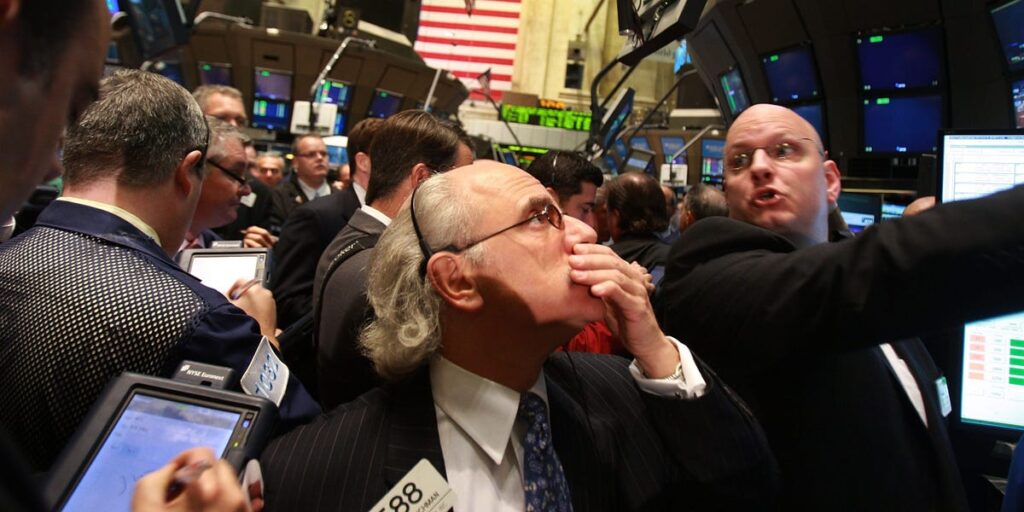JP Morgan’s chief global economist has a bleak outlook on President Donald Trump’s aggressive tariff policy: “There will be blood.”
In a research note to clients published on Thursday, JP Morgan’s Bruce Kasman, along with several other company economists, warned that the risk of the global economy falling into a recession has increased from 40% to 60% in response to Wednesday’s “Liberation Day” tariff announcement.
Trump on Wednesday announced sweeping 10% tariffs on goods from any country imported into the United States, and even higher tariffs for 60 trading partners with a persistent trade deficit with the US.
The wide-reaching “Liberation Day” tariffs impact countries including China and Japan, as well as the European Union, and territories near Antarctica inhabited only by penguins. They are in addition to existing tariffs against the United States’ top trade partners, Canada and Mexico.
“Disruptive US policies has been recognized as the biggest risk to the global outlook all year,” JP Morgan’s research note reads. “The latest news reinforces our fears as US trade policy has turned decisively less business-friendly than we had anticipated.”
The banking giant’s economists describe tariffs “at a basic level” as a functional tax increase on US household and business purchases of imported goods. Economists and supply chain experts previously told Business Insider the increased import costs caused by Trump’s tariff plan are expected to result in higher prices for everything from pantry staples like coffee and sugar to apparel and larger purchases like cars and appliances.
JP Morgan’s analysts found that this week’s announcement, on the heels of earlier tariff increases, raises the US average tax rate “by roughly 22%-pts to an estimated 24%,” equivalent to roughly 2.4% of the total value of all goods and services produced within the country, or GDP.
“A hike of this size would be on par with the largest tax hike since WWII,” the JP Morgan research note reads. Its effects could be magnified “through retaliation, a slide in US business sentiment, and supply chain disruptions.”
“We thus emphasize that these policies, if sustained, would likely push the US and possibly global economy into recession this year. An update of our probability scenario tree makes this point, raising the risk of a recession this year to 60%,” the note continues.
But a nationwide or global recession “is not a foregone conclusion,” JP Morgan’s economists offered as a potential silver lining.
“Beyond the obvious point that policy actions may be changed in the coming weeks, we continue to emphasize that the US and global expansions stand on solid ground and should be able to withstand a modest-sized shock.”
For now, though, the note indicates JP Morgan’s economists “view the full implementation of announced policies as a substantial macroeconomic shock” — one not easily recovered from, should Trump’s policies persist.


